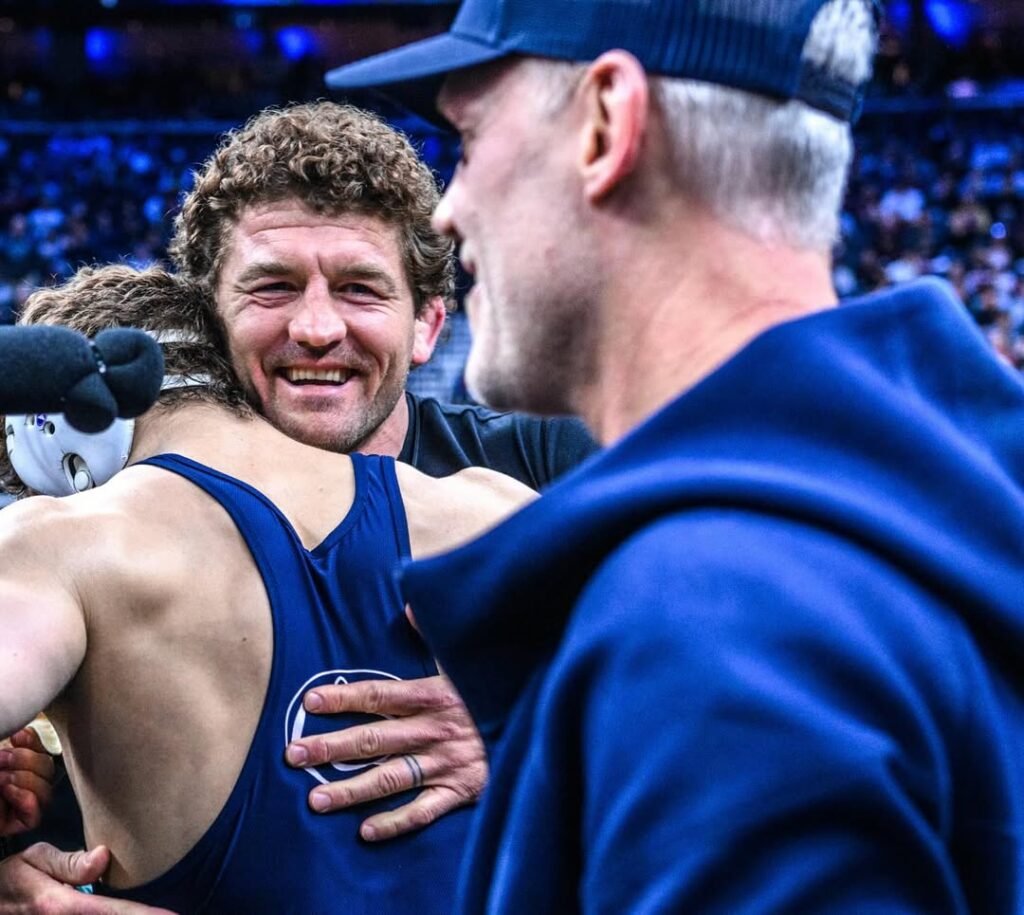Ben Askren’s name has long resonated within the world of combat sports. Known for his relentless wrestling style and outspoken personality, Askren’s journey from Olympic mats to global MMA stardom has been one of grit, resilience, and, most recently, extraordinary survival. As the UK’s search trends reveal, Askren is once again in the spotlight—this time, not for his exploits in the cage, but for a remarkable battle outside it.
Early Life and Olympic Ambitions
Born in Iowa in 1984, Ben Askren’s wrestling prowess became evident early on. He dominated the collegiate circuit in the United States, winning back-to-back NCAA titles at the University of Missouri. His unique, unorthodox style earned him the nickname “Funky,” and he soon represented the United States at the 2008 Beijing Olympics. Though he did not medal, his Olympic journey set the stage for a career that would take him to the very top of mixed martial arts.
The Rise to MMA Stardom
Askren’s transition from wrestling to MMA was seamless. He quickly made a name for himself in Bellator, one of the world’s leading MMA promotions, where he captured the welterweight title and defended it multiple times. His dominance continued in Asia’s ONE Championship, where he again became champion. By the time he joined the Ultimate Fighting Championship (UFC) in 2019, Askren boasted an unbeaten record, a feat that drew the attention of fight fans on both sides of the Atlantic.
In the UFC, Askren’s debut was dramatic. He faced Robbie Lawler, a former champion, and secured a controversial submission victory. However, his next bout would become one of the most talked-about moments in MMA history. Facing Jorge Masvidal, Askren suffered a knockout in just five seconds—the fastest in UFC history. Despite this setback, he remained a compelling figure, known for his candour and humour.
Retirement and Life Beyond the Cage
Askren retired from MMA in late 2019 after a loss to Demian Maia. He left the sport with a record of 19 wins, two losses, and one no contest. His fighting style, based on relentless grappling and strategic control, won him fans and critics alike. After retirement, Askren stayed connected to the sport, running a youth wrestling academy and offering commentary on the state of MMA. He also made a brief foray into boxing, facing YouTuber Jake Paul in a high-profile match in 2021, which he lost by technical knockout.
A Life-Threatening Ordeal
In June 2025, Ben Askren’s name returned to headlines for reasons far removed from sport. Askren was hospitalized in Wisconsin with severe pneumonia, a condition that developed following a staph infection. His health deteriorated rapidly, and he was placed on a ventilator. Within days, doctors determined that a double lung transplant was his only hope for survival.
Askren’s ordeal was harrowing. He later revealed that he “died four times,” with his heart stopping for about 20 seconds on each occasion. He lost 50 pounds during his 45-day hospital stay and has little memory of the events between late May and early July. His wife, Amy, documented the ordeal in a journal, which Askren described as reading “like a movie.” The outpouring of support from fans, fellow athletes, and the wrestling community was overwhelming, with many in the UK following his progress closely.
The Road to Recovery
Now recovering from his double lung transplant, Askren has spoken about the profound impact of his experience. In a video message from his hospital bed, he expressed gratitude for the support he received and described the ordeal as a transformative event. He noted that the love and encouragement from those around him made it feel “almost like I got to have my own funeral,” underscoring the emotional toll of his near-death experience.
Askren’s story has resonated with many in the UK, where the NHS’s expertise in organ transplants and the importance of donor registration are well understood. His ordeal has sparked conversations about the fragility of health, even for elite athletes, and the life-saving potential of organ donation.

Legacy and Impact
Ben Askren’s legacy extends far beyond his achievements in the cage. He has inspired a generation of wrestlers and fighters with his unconventional approach and unwavering self-belief. His willingness to speak openly about his struggles—both in sport and in health—has made him a relatable figure for many. In the UK, where MMA continues to grow in popularity, Askren’s journey serves as a reminder that true strength is found not just in victory, but in resilience and vulnerability.
Askren’s influence is also felt in the broader conversation about athlete health. His experience has highlighted the risks athletes face, not only from competition but from unexpected health crises. The UK’s sporting community, which has seen its own share of health battles among athletes, has followed Askren’s recovery with empathy and admiration.
Looking Ahead
As Ben Askren continues his recovery, he remains committed to helping others. He has expressed a renewed drive to regain his fitness and to support those facing similar challenges. His story is a testament to the power of determination, community, and medical innovation. For UK readers, Askren’s journey offers both inspiration and a timely reminder of the importance of health and support networks.
Askren’s Reflections and Public Response
In his first public statement since the transplant, Askren appeared visibly changed but maintained his characteristic humour and resilience. He described the outpouring of support from fans, the wrestling community, and the wider sporting world as overwhelming, likening it to “having my own funeral”—a testament to the emotional impact of the messages and donations he received.
Conclusion:
Ben Askren’s life has been defined by resilience, from wrestling mats to MMA cages and now to a hospital bed. His recent battle for survival has captured the attention of fans across the UK and beyond. As he looks to the future, Askren’s legacy as a fighter, coach, and survivor will continue to inspire. His journey reminds us all that, in sport and in life, the greatest victories are often those fought outside the spotlight.
Read More: Iain Robertson: Actor Caught in National Scandal

